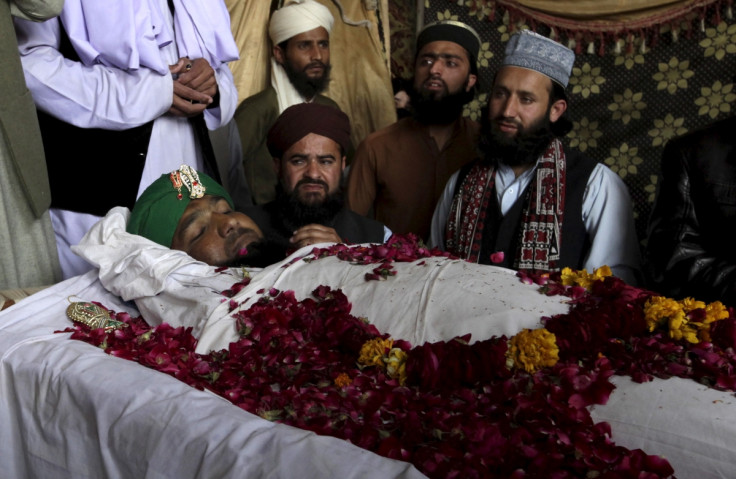Mumtaz Qadri: Thousands riot in Islamabad over policeman's execution

Around 10,000 people protesting the execution of Mumtaz Qadri – a police officer who murdered the politician he had been employed to protect – have clashed with riot police in Islamabad.
Local media is reporting that the crowd broke into the city's "red zone", the high security area around its government hub, and that police used tear gas to disperse protesters. The red zone, which houses Pakistan's parliament building, is heavily fortified and protected by hundreds of armed police and paramilitary soldiers.
Qadri, a former police commando from the Punjab region of Pakistan, was hanged on 1 March for the assassination of the region's governer Salman Taseer. Qadri, one of Taseer's bodyguards, shot him 27 times with an AK-47 assault rifle in broad daylight on 4 January 2011. He said he killed Taseer because the politician had wanted to liberalise Pakistan's controversial blasphemy law.
Following the murder, Qadri threw down his weapon and begged to be arrested, and he subsequently enjoyed considerable support from hardline clerics during his trial. He was eventually sentenced to death at the country's anti-terrorism court in Rawalpindi, Islamabad's twin city.
Riot police carrying batons and shields attempted to disperse crowds marking Qadri's sacrifice, while some reports suggest security force vehicles were torched in the chaos. A bus station was said to have been set ablaze, while an army colonel is believed to have been injured by stones thrown by the crowd.
The protest is alleged to have been largely ignored by much of Pakistan's media, which is believed to be subject to a government-ordered blackout designed to prevent unrest from spreading.
Qadri, a Sunni Muslim, has become something of a martyr figure for Pakistan's religious extremists, who are dead set against any removal of the blasphemy law; some estimates suggest that more than 100,000 people attended his funeral, and unrest has grown in the country since his death.
© Copyright IBTimes 2025. All rights reserved.






















